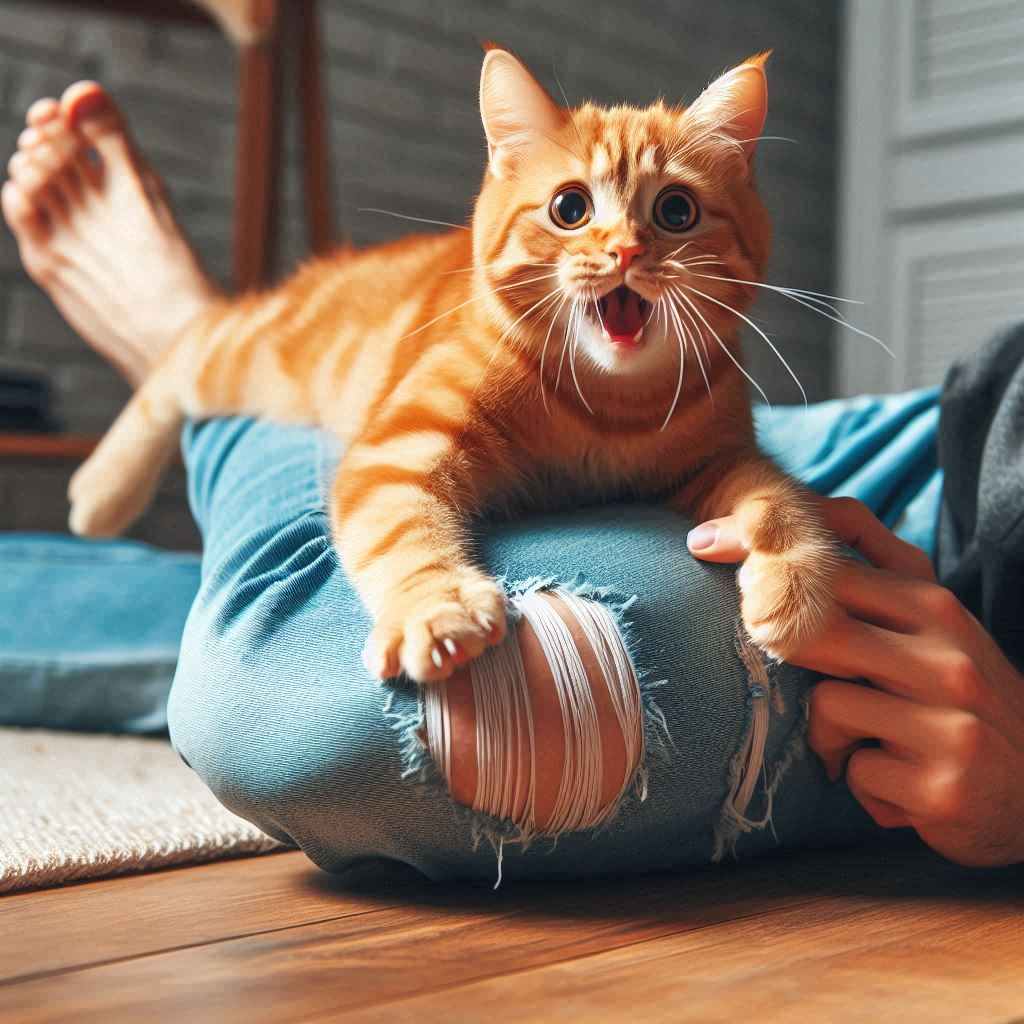
If you live with a cat, you may have noticed that your pet seems to be purring more than usual. This is because cats purr when they are happy or in pain.
Cats also purr when they are feeling safe. Cats purr when they are comfortable, so if they aren’t comfortable, they will start purring to let you know.
You can tell if your cat is suffering from pain by listening for the noises he makes while he’s purring. If he sounds like he’s in great pain and his purrs are short and quick, then there’s a good chance he’s in pain.
Cats purring in pain are almost always experiencing some sort of physical discomfort. They might have a sore paw, or a scratched ear, or a scratch on their belly.
They might be in the middle of fighting with another cat for territory or for food.
They might be in pain from an injury, like a broken bone or torn ligaments.
They might be in pain from something that happened recently, like a recent surgery or illness.
If your cat starts sounding like he’s in pain and making shorter, quicker purrs, then it’s best to take him to the vet right away.
Why Does My Cat Purr While Sleeping on Me?
Cats purr when they are happy. If your cat is purring while sleeping on you, it means that she is very comfortable and happy. Cats love to be close to their owners and will often snuggle up to them during the night.
Cats also purr when they feel safe. Cats will purr when they feel safe in a new environment, such as when they are being carried by their owner or when they are sitting on a lap. If your cat happily snuggles up to you every night, she may be feeling safe at home and is just enjoying the comfort of being close to someone she loves.
A tired cat will sometimes have trouble falling asleep at night because she needs more rest than an energetic cat does. So if your cat has been up all day and then wants some attention in the evening, this could be why she is purring so much! She may also be trying to tell you something like “time for bed” or “I’m ready for bed.”
Cats have a high metabolism and need to eat a lot of food each day. Cats also rely on their owners for warmth and protection from the cold, so when your cat nestles up against you, it’s a sign that they feel safe with you.
Although it’s not clear exactly why cats purr while sleeping, scientists have found that purring is one of the ways cats communicate with other animals. Purring can be used as a form of communication between cats and dogs as well as between individual cats.
Why Do Cats Purr?
Cats purr when they’re happy. It’s their way of communicating with you. They love to feel the vibrations in your lap, and they love the attention it gets them.
Cats also purr when they’re feeling threatened or scared. Sometimes it’s because they’re being hit by another cat, or being hurt in some way. But sometimes it’s because they’re scared of something else — like a strange sound or a strange shadow they saw out of the corner of their eye.
Purring may be annoying to some people, but cats don’t hear their own purring — so it doesn’t really bother them at all!
Purring is a method of communication in which a cat uses its vocal cords to vibrate the sides of its mouth.
Cats use purring to communicate with other cats, humans and other animals. Purring can be heard in humans as a low-pitched sound similar to a car engine idling, but cats do not hum or make noise like a motor vehicle.
Purring can also be heard in humans as an emotional response to music or when feeling relaxed or content.
The purr is so soothing that some people who have never seen a cat might think they are humming when they purr.
Can Cats Purr Too Much?
Cats can purr 20 to 30 times per second, making it difficult for humans to hear their purring at the same time. But if you listen carefully, you’ll notice that their purring changes pitch as they get closer to fullness. This is because the vocal cords vibrate faster as energy is needed for more frequent purring.
Cats purr when they are content. If you have ever tried to tell your cat that he is purring too much, you will know why this can be a difficult thing to do.
Cats purr only when they feel good, and even though it might be annoying for you to hear, it is an important part of their communication with us.
Cats purr for many reasons. Some cats purr in the womb, and some will continue to purr for the rest of their lives.
Cats also purr when they sleep, or if they are being held or petted. A cat may also purr if it hears a baby crying or if it has just been given food or treats.
It is true that some cats purr too much and others do not at all! The amount of time a cat spends purring depends on many factors such as age and health, but most cats seem to need less than twenty minutes a day to be happy.
Do Cats Stop Purring When They Sleep?
The short answer is yes, but there’s more to it than that. The cat’s purr is controlled by several muscles in their throat and mouth, and they need rest so that these muscles can heal after being used during the day.
If you have a cat that keeps purring while they’re awake, it’s because they’re trying to communicate with you – they’re telling you something about how they feel.
Cats are known for their love of sleeping. They make themselves comfortable in bed and then fall asleep. While they may be snoozing, their smiles will still be there.
Cats purr while they’re sleeping because they want to show their affection for their owners.
Purring is a way for cats to communicate with each other and also give off body heat. Cats also purr when they are feeling stressed or anxious, so if your cat is yawning, this could be a sign that she needs your attention.

